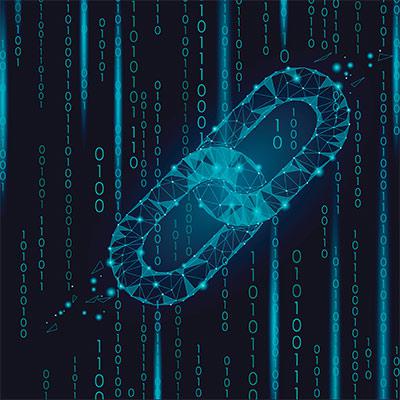6 Tech Execs On The Blockchain Opportunity In IoT

Can Blockchain Work In IoT?
Up until the past few years, blockchain has largely been known as the distributed ledger technology that powers cryptocurrencies like Bitcoin and Ethereum. But with blockchain's immutability and distributed nature, in addition to its smart contract and consensus capabilities, the technology has been receiving a lot of buzz in the enterprise space, mostly from software and hardware vendors, while some solution providers have also been voicing their interest.
At IoT World in Santa Clara, Calif., last month, executives and leaders from AT&T, Cisco, Google, Comtech and Software AG gave their thoughts on where they see blockchain fitting into the Internet of Things ecosystem, if at all. The most common use case cited was supply chain management, which can benefit from blockchain's tamper-proof qualities, its ability to require consensus from multiple parties to complete transactions, and its ability to set rules and conditions for transactions with smart contracts.
At the same time, most of the executives said blockchain is still in its early days, where most companies are still working on proof-of-concept projects.
"With blockchain, we have gone through this huge hype curve. A lot of use cases that I traditionally hear about people citing actually turn out to be red herrings," Maciej Kranz, vice president of Cisco's strategic innovation group, told CRN.
In the following slides, tech executives give their opinion on the blockchain opportunity in IoT.

Mobeen Khan, IoT executive, AT&T
Khan, associate vice president of product marketing management for IoT solutions at AT&T, said his company is exploring blockchain technology, namely in supply chain management, though he stressed "we're in a very exploratory stage."
"There are many ways you can apply blockchain, and you can apply that within the network as a network fabric or a node and offer that as a service," he said.
In supply chain, Khan said companies are currently using disparate IoT systems to track the transfer of goods, meaning that the data is often proprietary. With blockchain, he said, the technology can facilitate the sharing of that data to improve processes.
"Having a blockchain fabric where people put in this data with rules around how it can be shared allows a trust to built, so that you can get the benefit of having the right data and you can have more real-time insights into where this piece is in the custody chain," Khan said.
Maciej Kranz, VP of strategic innovation group, Cisco
Kranz, author of the new "Building the Internet of Things" book, called blockchain one of the four disruptive technologies of our time, next to IoT, machine learning and fog computing.
"When you think about what blockchain does, it allows for enabling multiple parties to transact across these multiple organizations in an efficient and permanent way," he said.
Like other executives, Kranz pointed to supply chain as a use case, which can include the tracking of quality of products and their provenance. He pointed to food safety and patient records as two more specific use cases at the interaction of blockchain and IoT.
But while blockchain may have the ability to transform certain processes, Kranz cautioned that the technology shouldn't be seen as a silver bullet. He said Cisco actually analyzed 17 potential use cases for blockchain and out of them only found a handful worth solving for.
"With blockchain, we also have gone through the huge hype curve. A lot of use cases that I traditionally hear about people citing actually turn out to be red herrings," he said.

Jenn Bennett, technical director, office the CTO, Google Cloud
Bennett, who advises strategic customers for Google Cloud, said Google has an internal group focused on blockchain and that she believes the biggest opportunity is in supply chain.
"The promise and the excitement around it is less about the currency pieces of it and more about, say, for example, how do we handle legal document transfer? If you think about a supply chain and you think about how I move from ownership to ownership to ownership eight times in the border crossing or something like that, smoothing out that process is something that's on everyone's mind," she said.
But she also thinks the technology is still in its early days.
"Whether blockchain is, as it is today, the absolute right solution or not, I think everyone is still debating this," Bennett said.
John Stewart and Theo Hildyard, VPs, Software AG
At Software AG, there was more skepticism about the applicability of blockchain in IoT by Stewart, Software AG's vice president of digital content marketing and global communications, and Hildyard, the company's vice president of industry marketing.
"I think blockchain fundamentally is a useful idea. However, I think that IoT right now is at the stage where it's moving from first movers to fast followers, and those guys have enough of a technical challenge [with IoT deployments]," Hildyard said. "To bring blockchain into it right now, it seems like we're trying to find a home for blockchain."
"Overcomplicating a complex situation already, essentially," Stewart added.

Brian Salisbury, VP of product management, Comtech
Salisbury, who leads Comtech's location-based technology offerings, said he "absolutely" sees potential for blockchain in IoT deployments.
"I think that it's not necessarily something that is needed in all kinds of applications, but there are a lot of applications where having that sort of audit trail of what has happened from the very beginning through to now is very critical," he said, "and blockchain appears to me to be a very efficient way to enable that to happen."